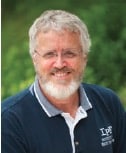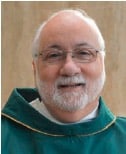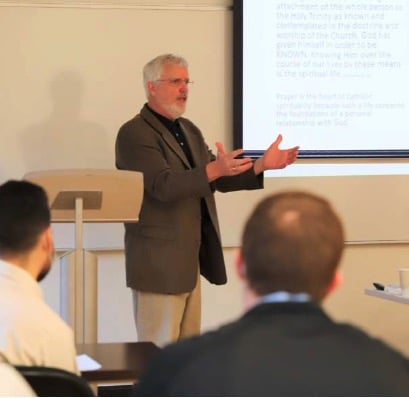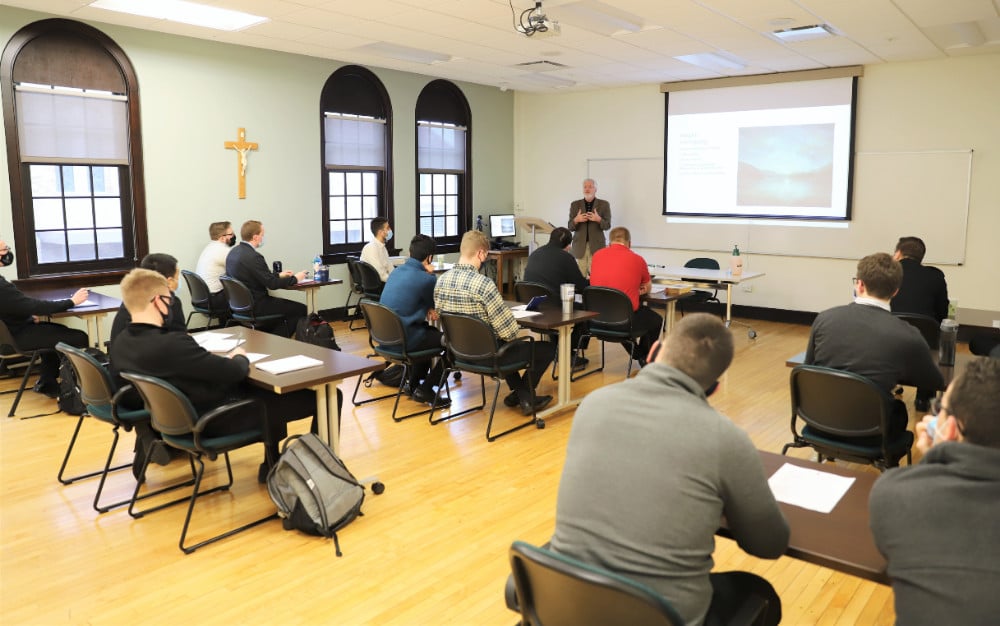From the earliest times of the Church, deacons served in three ministries at the direction of their bishops, meaning that guy who assists the priest at the altar is more than just a friendly neighbor offering a hand as a junior priest or as a glorified altar boy.
Four years of education in Catholic theology and training through the auspices of their diocese precedes the laying on of hands by their bishop, which marks them with an imprint or “character” that is permanent and configures them to Christ the Servant.

That character imprinted at ordination, like the wounds of the crucified Christ, pour out service through liturgy, the word and charity. Currently, the Catholic Church in the United States is served by 19,000 deacons. They comprise the fastest growing segment of ordained clergy in America. They are ambassadors of the bishop and are always under his authority.
“Since the restoration of the permanent diaconate [more than 50 years ago], the Church has been listening to the Spirit in how to understand this grade of holy orders in relation to the mystery of Christ,” Deacon James Keating, a professor of Spiritual Theology at Kenrick Glennon Seminary in St. Louis and author of several books about the diaconate, told Our Sunday Visitor. “The Church’s understanding will only mature, which means how the restoration began and the way the diaconate was understood in the late 20th century may not be in complete continuity with the diaconate of the future.
Read more from our Spring Vocations Special Section here.
“We know that only now is a real theology of the diaconate beginning to emerge after a time when the Church understood the diaconate primarily as a step to priesthood. I am looking forward to how the diaconate will be shaped by the Holy Spirit through orthodox theologians in the coming decades.”
Instituted by the Holy Spirit
The Holy Spirit blossoms and takes root in the Acts of the Apostles, Chapter 6, when the apostles respond to complaints from Greek Christians that their widows and children are not permitted to share equally in the assistance of the burgeoning Church.
This chapter (v. 3-6) tells of the solution to the needs of the expanding community for food. The apostles instructed their disciples to “select from among yourselves seven men of good reputation, filled with the Spirit and with wisdom to whom we can hand over this duty.”
The apostles announced they would “continue to devote ourselves to prayer and to the service of the word.”
The assembly of disciples approved and “elected Stephen, a man full of faith and of the Holy Spirit, together with Philip, Prochorous, Nicanor, Timon, Parmenas and Nicolaus of Antioch, a convert to Judaism.”

Deacon Dominic Cerrato, editor of The Deacon magazine, published by Our Sunday Visitor, said that the Holy Spirit who blossoms and takes root in these biblical verses remains in the 21st century.
“The permanent diaconate develops into what the Church needs today. … It is the changing and the changeless,” Deacon Cerrato said. “How do I provide the biblical truths (amid change) without losing the essence?”
Deacon Cerrato is director of Diaconal Ministries and director of the diaconate for the Diocese of Joliet, Illinois, supervising 239 deacons and overseeing 40 men in formation to become deacons. He was ordained in 1995 as the first permanent deacon of the Diocese of Steubenville, Ohio. Deacon Cerrato is a national speaker, retreat master and author, having recently completed a book on the diaconate entitled, “Encountering Christ the Servant: A Spirituality of the Diaconate” (OSV, $18.95).
A life of service
The Dogmatic Constitution on the Church provided by the Second Vatican Council speaks of three areas of diaconal service: ministry of charity, ministry of the word and ministry of liturgy.
The deacon is ordained to be a witness to the Gospel through a life of service. A deacon serves through his person-to-person encounters: He ministers to the poor, the aged, the sick and prisoners. The deacon is the emissary who serves the liturgy at the altar, preaches the word at Mass and goes into the community beyond the church doors.
An apt symbolism offered by several deacons who spoke to Our Sunday Visitor is the place of the priest at the altar with the chalice, where the food to feed the community is prepared and distributed, and the pulpit, where the word is evangelized; and the deacon travels as an ambassador carrying the Eucharist as food and the word through the nave, where the community goes forth to the community at large.

The majority of permanent deacons are married with children. Deacon Keating is married with four children and a grandfather to three. He was ordained 21 years ago. Deacon Cerrato is married with seven children.
Among the considerations of new candidates is “these men are first, a servant to their wives and children … and the wives must give permission for their husbands to enter formation,” Deacon Cerrato said.
Deacon Keating is a respected author of books such as “The Heart of the Diaconate: Communion with the Servant Mysteries of Christ” (Paulist Press, $12.95) and “Configured to Christ: On Spiritual Direction and Clergy Formation” (Emmaus Road Publishing, $19.95).
“My vocation informs my imagination and fuels my passion for writing in spiritual theology,” he said. “This is true of all vocations. Each person’s mission defines his or her purpose within the Church; this mission shapes one’s gifts and how they will be shared and developed.
“Regarding the diaconate specifically, I am fascinated with how a man is configured to Christ and Christ’s own mission as envoy of the Father’s love, healing and service,” Deacon Keating said.
Deacon Brian Callahan of the Diocese of Providence, Rhode Island, who is assigned to Sts. Rose and Clement Church in Warwick, Rhode Island, is a new deacon, serving his first year in a parish. He is a high school history teacher in Warwick and married with children.
“Since I was a teenager, I knew I was called to some service,” Deacon Callahan said. “Catholic peer ministry gave me some insight into this world. At every major signpost in my formative years, a deacon was present.”
Family is the primary vocation for all married Catholic men, so the decision to enter the diaconate is a family matter. For Deacon Callahan, that discernment occurred over several years.
“I was thinking about applying to the previous diaconate class, but my children were very young,” he said. “This gave me many more years to pray about and talk to my wife about this calling. One’s family must be made aware of all of the requirements, especially during the years of formation. The ministry does take me away from my family, but we work to make sure quality time continues.”
Family comes first
Deacon Stephen F. Miletic is a professor of scripture and theology at Franciscan University of Steubenville, Ohio, and is also the director of the school’s Institute for Diaconate Renewal. Family comes first before and during the diaconate, he said.
“It is kind of a unique call to orders, because the wife has to discern the call,” Deacon Miletic said. “She must agree this won’t harm the family.”
Among his duties as a deacon was helping to form the exorcism ministry for the Diocese of Steubenville.
“We trained priests and wrote the policies for the ministry,” Deacon Miletic told Our Sunday Visitor. “Our team gathered, and you go where the bishop sends you.”
Deacon David Lopez, director of diaconate formation for the Diocese of Sioux City, Iowa, was ordained 12 years ago. He has been married for 27 years and has three children.
Like many veteran deacons, Deacon Lopez has served in various roles in the diocese. He is the former chancellor of the diocese and has served in parishes for a decade, providing baptism preparation, RCIA, outreach to nursing programs and adult education.
“I was a prison minister before I was a deacon, and once I got over my initial fears I found a tremendous opportunity to serve,” Deacon Lopez said. “The wounds of Christ’s love set me on fire. The Christ that pours out of my wound pours out love that converts pain into love.”
Deacon Joseph Michalak was ordained 12 years ago and serves as the director of diaconate formation for the Archdiocese of St. Paul and Minneapolis. He is married with six children, one of whom is deceased. His view of the job sees a deacon as a man of action. Deacon Michalak said American men at all stations of life are poor, especially the most successful ones.
“People in the boardroom, those are the poorest people in America,” he told Our Sunday Visitor. “We need deacons there to evangelize. Deacons are the Delta Force. We are the sacramental body of the Church behind enemy lines. We are the right-hand men of the bishop to be sent out to the parish, not into the parish.”
Joseph R. LaPlante writes from Rhode Island.





